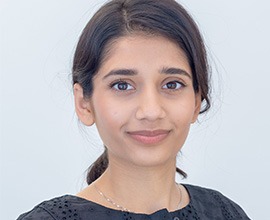Our team of expert psychiatrists and psychologists deal with the prevention, diagnosis and treatment of a great variety of psychiatric and psychological conditions. We specialise in helping people with a wide range of psychological issues from day to day worries to more complex problems:
Islamic Counselling Therapies
Types of Islamic Counselling and Therapies
Our team of psychological therapists can offer the following Islamic therapies:
- Cognitive Behavioural Therapy
- Eye Movement Desensitization and Reprocessing
- Mindfulness-based Therapy
- Psychodynamic Therapy
- Person-Centred
- Systemic Therapy

Cognitive Behavioural Therapy is an evidence based approach to dealing with emotional and psychiatric problems, which explores an individual’s deeply assumed thoughts and feelings and encourages the client to compare these ideas, which are often destructive or damaging, with reality.
The client is brought to realise how negative thoughts and feelings have become associated with beliefs and assumptions, which it never occurs to us to question, and when we do question them we often find that they are mistaken.
The focus is on what the client is thinking and feeling now, and this type of therapy is not concerned with exploring childhood experiences or exploring the subconscious.
It is proven to be effective, working well for individuals who have depressive or anxiety disorders. It is also used in treating compulsive disorders, phobias, fears and even post-traumatic stress disorder
This is a form of psychotherapy, which helps people to recover from the distress caused by disturbing experiences, and has the advantage of working much more quickly than deep psychoanalytical analysis.
EMDR therapy shows that the mind can recover from trauma, just as the physical body can heal itself, and is based on the belief that the brain works naturally to regain mental health. The technique of EMDR involves the clinician asking the client to describe and think about the painful memory while using his or her eyes to track the therapist’s hand as it moves back and forth across the client’s area of vision.
It is believed that what happens here is related to the biological events associated with Rapid Eye Movement sleep, and that it leads the client to reprocess memories and unpleasant feelings. It is the client’s improved emotional and cognitive processing which brings about the improvement.
The whole concept of mindfulness is closely linked to the ancient belief in the power of meditation which figures so largely in many eastern and monastic religious approaches. The therapy calls on the client to focus closely on awareness of the present, acknowledging feelings, thoughts and sensations without judgment, and disregarding context or history (ie what happened in the past to make you feel like this).
If we concentrate on the present moment we can achieve calmness and thoughtfulness. The aim is to develop awareness at all times of your thoughts and actions, so that you can spot at once any inclination to negativity or destructive thoughts. It takes some learning, but has a proven success rate for many.
Person Centered Therapy provides a safe, containing and non-judgmental space where the therapeutic relationship between the client and therapist is imperative. The therapist provides a safe space with warmth, validation, listening, unconditional regard and empathy within which clients can explore their experiences, thoughts, feelings, and behavior whereby are all areas are considered with a crucial level of attention. Undertaking person-centred therapy allows the individual to confront these experiences and feelings and to make sense of their experiences and feelings helping them to find a solution to their problems.
Our expert therapists offer a safe and non-judgmental environment, promoting positive reinforcement in order to aid the healing process for the client.
Schema Therapy is an integrative psychotherapy that draws upon and combines other approaches; using aspects of other therapies such as cognitive-behavioural, interpersonal and experiential. This mixture of therapy models allows patients and therapists to understand psychological problems in terms of emotionally-driven concepts of belief or behaviour.
These are referred to as ‘Schemas’, and through Schema therapy, clients can identify recurrent origins through their life. This allows both the client and therapist to work together and use various methods in order to best manage and recover from harmful past experiences.
Schema therapy has proven incredibly effective in the treatment of a wide range of problems, both short and long-term.
Psychodynamic Therapy draws on theories and practices of analytical psychology and psychoanalysis. It seeks to bring the unconscious mind to the surface, helping people to understand why they think and feel as they do and what events in the past have shaped our minds, sometimes in a negative way.
The core belief is that the unconscious mind contains deeply embedded assumptions and beliefs, which can have an important effect on our conscious thinking and feeling. Various techniques are used by the therapist, including the use of free association – getting the client to say what first comes into his or her head, in the belief that this will show what is working most forcibly in the client’s mind.
There can be therapeutic transference, where the client is led to redirect feelings on to the therapist, thus bringing deep unacknowledged feelings to the surface. Psychodynamic Therapy can help people with many psychological problems to change their thinking and attitudes, putting to flight destructive feelings that have their hidden bases in the subconscious mind.
Islamic Therapist
- Muslim marriage counselling - 27th May 2019
- Fear of the Unknown - 11th May 2019
- Islamic Counselling for Anxiety - 11th May 2019



